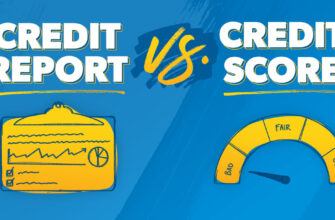Today, we increasingly come to the bank for a loan, as in the store for a particular product. Taking out a loan has become relatively easy. Banks develop a variety of credit programs. They invite potential customers to them, offering them a reduced percentage, the opportunity to take a large amount upon presentation of a minimum documents and sometimes without any security, or a super-short review period. Sometimes you don’t even need to come to the bank to apply for a loan — everything can be done via the Internet.
All this contributes to the fact that most people have used credit at least once in their lives. Some, paying off one debt, immediately draw up a new contract with the bank, while many pay off the debt simultaneously on two, three or more loans (this also includes credit cards).
So, is credit a bad decision or are there still situations in which it is perfectly acceptable or even reasonable to use it? How to do this with minimal losses and not fall into the debt trap?
First of all, no matter how banal it may sound, evaluate how much you really need it. Listening to advertising in the media about how easy it is to get one we sometimes imagine how much we can afford for this amount: relax in an expensive hotel, buy a chic fur coat, the most sophisticated phone model or a car that is newer, more powerful and expensive. And all so easily and without much effort – just fill out an application on the site, and the dream is in your pocket. This is the attractive side of the loan. This is what banks most actively use in their marketing strategies.

They emphasize that credit helps to realize dreams, and right here and now, that you need to live in the present and not postpone life for tomorrow. Mostly banks play that you can afford it. The main thing is to clearly understand at this moment: the bank is not Santa Claus. By textbook the first three principles of credit: repayment, payment and urgency. Thousands can be easily taken, but you will need to return (repayment). For the use of this money, you will be required to pay in the form of interest on the loan (fee), and all this you must have time to do in a strictly defined period (urgency).
Therefore, evaluate your need: is what you plan to spend credit money on really necessary right now?
Let’s assume that your work is connected with active traveling by car, and your existing car broke down beyond repair. Or your family has grown significantly and does not fit entirely in the good old car. Children need to be taken to classes in different circles scattered around the district and periodically make mass purchases in the hypermarket… Perhaps we should agree that in this case, the car is not just a means of comfortable transportation, but a vital necessity.
The second situation: you bought a dwelling in a new building, got the keys and started to make repairs, but ran out of budget. At the same time, you live in a rented apartment. In this case it is more reasonable to take the missing amount on credit in order to quickly finish the repair work and move then to continue to pay a few additional months for rent.
There are sad situations when you urgently need, for example, expensive treatment or surgery.
In all these cases, making a loan will be quite justified. Although in the same way it could be avoided with competent financial planning of your life, the presence of at least an airbag for emergency situations and savings in the form of sums set aside in advance for expensive purchases or repairs.

That is, with a reasonable approach, it is profitable to take out loans, provided that your own funds are placed on deposit or invested in other financial instruments and you clearly understand that your total overpayment on the loan will be less than the income received from the placement of funds. In other cases, especially if your planned purchase is not for you at the moment a necessity, from the point of view of economic benefits better than a few months to save money for a Deposit, selecting an optimal combination of reliability of the Bank and the level of interest charged, and save for a desired item without resorting to a loan.
So, deciding on the first point: you know for sure that you can not do without lending at the moment due to your urgent need. And for you now it is more profitable than to save money for some time or withdraw them from financial circulation (if there are savings).
The second step, perhaps the most important, is to balance your desires with your opportunities. How stable is your financial situation now, do you have a plan B in case of an emergency? Ask yourself what happens if you get sick and go on sick leave for a long time? If there are problems at work? How will you repay the loan in this case? Do you understand what steps you will need to take in order not to spoil your credit history seriously and for a long time? Of course, you need to look to the future with optimism and believe in the best in any situation, except for one — when making a decision about applying for a loan. No too “somehow it will resolve itself”, be a little pessimist, weigh all the pros and cons.
How much money are you willing to give to the bank painlessly for yourself and your family, and will it affect your usual lifestyle? Moreover, it is worth thinking carefully if a vacation, a fitness club, delicacies and tutors are not available to you without a loan, and your task is to reach your salary. Many people fall into a vicious circle of debt, from which it is then difficult to get out. It is often recommended that total loan payments should not exceed 50 percent of the average household income. However strategically the loan payment should not be higher then 50 percent of the income of one family member. If one of the spouses loses his job, it will be possible to hold out for some time at the expense of the income of the second, without allowing delay. Well, in general, everything happens in life. Remember, after all, that you need to be a little pessimistic when making a decision.
So, you have considered everything, weighed it and decided to take out a loan. Do not go to the first bank that promises large sums without any effort on your part. Remember: the less the bank requires from you, the higher the probability that it puts its risks of non-return in the interest rate. Avoid pawnshops and suspicious small shops that give money to everyone without any proof of income, employment, one passport (or even without it).

One of its main and most important parameters is the interest rate. In addition, banks are required to print the full cost of the loan in a large and easy-to-read font on the first page of the loan agreement in the upper right corner. And both in percentage terms and in absolute terms of currencies you taking on a loan in. The total cost of the loan is not equal to the interest rate per annum, it is the sum of all your interest payments, as well as other expenses, payments to third parties, including insurance fees.
In other words, simply put that this is your total overpayment for the entire loan term. In advance, find out what are the current values of the average market..This way you can find out whether this indicator is average, below/above average, or close to the limit values for a particular credit institution. Of course, if it goes beyond the limit value, then the loan is issued with a clear violation of the law. This indicator is set separately for banks, microfinance organizations and pawnshops.
What else should you pay attention to in the loan agreement, other than the interest rate and the loan term? First of all, whether there are any additional commissions and payments (according to the law, they should not be). If the bank obliges you to open an additional account or issue a card for the issuance and repayment of a loan, then the service for them will be absolutely free, without establishing a minimum balance.
Also, the loan agreement should specify from which your accounts opened with this bank the loan can be repaid. If you offer a non-acceptance debiting from any accounts, then this does not meet the requirements of the law.
Be sure to read what penalties are provided and what amount of penalty is indicated. The law establishes clear restrictions: the amount of the penalty may not exceed certain percent per annum (if interest is accrued on overdue debt). That sets a limit on the amount of penalties for loans with a period of no more than one year. This means that as soon as the amount of the accrued penalty reaches the amount of the loan amount multiplied by two further accrual of penalties stops. Of course, it is better not to bring the situation to this. If after all there was a force majeure and you have difficulties with the payment of the loan, then the worst thing you can do is to start hiding from the bank and wait until “it resolves itself”. It is better to come to the bank in advance, without waiting for the penalty to be charged, and try to solve the case peacefully. Be sure to try to record the fact of voluntary treatment. As a rule, banks meet halfway and offer various ways of settlement: for example, a delay in payments, an increase in the loan term in order to reduce the amount of payment.
So, how to take out a loan and not regret it?
- Make an informed decision and take into account the risks that may arise in the future.
- Do not go to the first available credit institution, but study several offers from different banks. Start with the one in which you have a salary card (often banks offer discounts to “salary holders”), but do not dwell on this option.
- Find out in advance the value of the total cost of the loan and compare it with other banks.
- Avoid microfinance organizations if possible.
- Try to repay the loan ahead of time — this will allow you to significantly save on interest payments. Please note that banks cannot restrict you in this right.
- Carefully study the loan agreement. Never sign it without reading it!
In short, if you take into account all the pros and cons of a loan, know your rights and obligations, plan your finances correctly, then it may not be as scary as it sometimes seems, and in some cases it will even be a good help in realizing your dreams.








